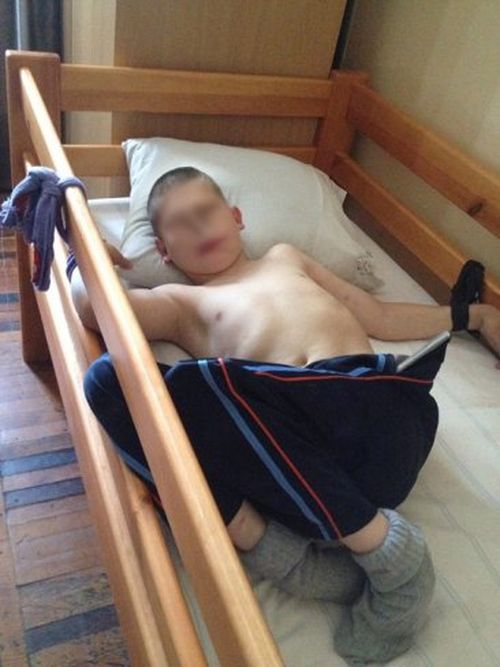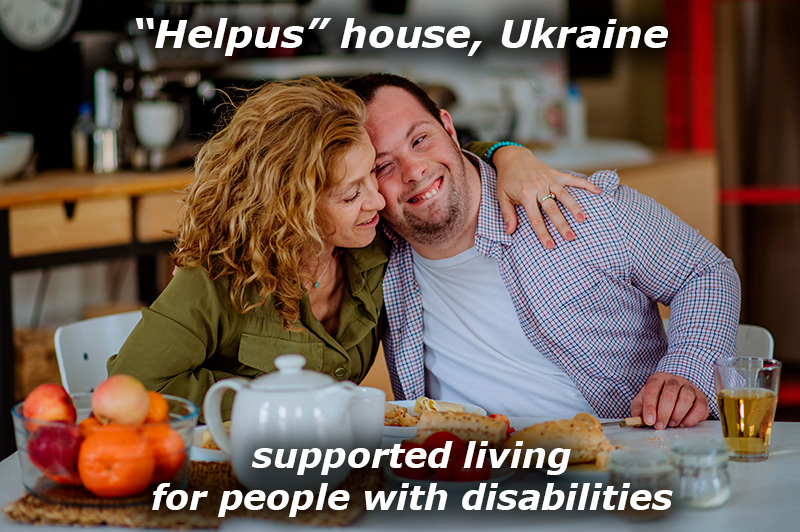
In the course of 2023, at the behest of the Commissioner for Human Rights of the Verkhovna Rada of Ukraine, the Children's Rights Monitoring Department of the Commissioner's Secretariat conducted 97 monitoring visits, seven of which were to orphanages housing children with disabilities experiencing severe physical, intellectual, and mental disorders.
The age range of the residents varies, encompassing four-year-old toddlers and teenagers up to the age of adulthood.
The findings from the monitoring visits are distressing:
Insufficient staffing of specialists crucial for the rehabilitation of the children.
Inoperative physiotherapy and physical therapy rooms.
Violations of sanitary and hygienic standards, as well as safety requirements.
Shelters that are either inadequately equipped or in a state of emergency.
This is not an exhaustive list of systemic violations of the rights of the residents of these institutions to healthcare, proper medical care, safety, and an adequate standard of living, as identified by the employees of the Commissioner's Office.
Professional specialists (educators, social workers, junior nurses - nannies, psychiatrists) are reluctant to choose psychoneurological orphanages as workplaces due to the inconsistency of the physical demands with the low level of wages. For instance, there are cases where one nurse is responsible for preserving the life and health of nine children with disabilities, resulting in a decline in the quality of services provided to the wards.
Moreover, the wage disparity between medical workers in healthcare institutions and those in social welfare institutions, such as psycho-neurological orphanages, is significant: 20,000 hryvnias for individuals in medical positions in healthcare institutions, compared to almost 7,000 hryvnias for a doctor working in the specified type of institution. The salary of a teacher is 5,931 hryvnias, a nanny-sanitary worker receives 4,593 hryvnias, and a psychiatrist is paid 6,582 hryvnias.
The sensitivity of the issue is heightened by the fact that, due to their health conditions, the residents of these orphanages are incapable of caring for themselves. Beyond daily medical care and a complex of rehabilitation measures, they require special attention, suitable living conditions, 24-hour external care, and household services.
Presently, deinstitutionalization is underway in Ukraine - the reform of orphanages and boarding schools, remnants of an outdated system incapable of ensuring the best interests of the child.
As long as children from residential institutions transition to family-based forms of upbringing, the state has an obligation to ensure the realization and observance of their rights.
Therefore, based on the monitoring results, there is a necessity for increased attention and additional responses from state authorities concerning the residence of children in institutional settings, especially in children's boarding houses accommodating children with disabilities.
To address this situation, the Commissioner of the Verkhovna Rada of Ukraine for human rights, Dmytro Lubinets, has reached out to the Prime Minister of Ukraine, Denys Shmygal, regarding the regulation of remuneration for workers in social welfare institutions.
It is imperative that, through collective efforts, we create an environment for these children that fosters their optimal development, education, rehabilitation, the realization of potential, and integration into society.



